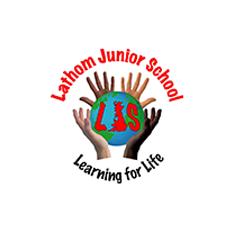Assessing without Levels
The New Curriculum focuses on ensuring children have an outstanding breadth of understanding within the concepts and skills they learn. The application of skills and understanding across a wide range of curriculum areas is of greater importance now. Rather than moving ‘up’ the stages (similar to the old levelling system), the focus is on moving ‘outwards’ to develop a deeper understanding.
Gathering evidence of children’s progress and development will continue with a wide range of formative assessment; (day to day assessment through learning completed, observations, conversations and guided sessions) which will inform staff’s planning and also summative assessment (more formal assessment/tests) which will play a part in the overall assessment and progress checks for learners at set times in the year.
Effective Assessment Systems should
- Give reliable information to parents about how their child, and their child’s school is performing
- Drive improvement for pupils and teachers
- Ensure the school is keeping up with external best practice and innovation
Early Years Foundation Stage (Pre-school, Nursery and Reception)
Children in the EYFS will continue to be assessed against the Early Years Foundation Stage Profile. This consists of age bands with outcomes taken from the Development Matters document which makes it clear how children should progress from their on entry assessment in pre-school or nursery and work towards
the Early Learning Goals for Reception aged learners.
During the children’s time in the pre-school the staff complete a ‘Two Year Development Review’ with consultation with the child and parent in line with EYFS guidelines. At the end of Reception the children are reported as Emerging, Expected or Exceeding the Early Learning Goals in each area of the prime areas
(Personal, Social and Emotional Development, Communication and Language and Physical Development) as well as in Literacy and Mathematics.
Evidence in the EYFS is gathered through observations of learners, samples of work, and photographs of play and conversation records which demonstrate the child understands of a given concept. Profiles are regularly shared with parents.
Key Stage One and Two (Years 1 – 6)
Altmore and Lathom Federation staff are teaching from the New National Curriculum and covering all requirements for the specific year groups. At the end of each unit of work teachers evaluate the children’s understanding. The evaluations against the age expected standards monitors children’s progress
throughout the year.
End of unit evaluations are recorded using ‘Target Tracker’ and children are given appropriate targets which are also reviewed frequently. Targets for English and Mathematics are displayed in the children’s classes to ensure they know their next steps to further develop their learning. Targets are also shared and
discussed with parents at parent’s evenings.
Children are assessed against the end of year expectations in terms of whether, at each stage, they are Beginning (B/B+), Working Within (W/W+) or Secure (S/S+). Below is a table which shows how bands are developed throughout the school.
Steps
| Year 1 (Band 1) | 1 beginning (1b) |
| 1b+ 1 working (1w) 1w+ 1 secure (1s) 1s+ |
| Year 2 (Band 2) | 2 beginning (2b) |
| 2b+ 2 working (1w) 2w+ 2 secure (1s) 2s+ |
| Year 3 (Band 3) | 3 beginning (3b) |
| 3b+ 3 working (1w) 3w+ 3 secure (1s) 3s+ |
| Year 4 (Band 4) | 4 beginning (4b) |
| 4b+ 4 working (1w) 4w+ 4 secure (1s) 4s+ |
| Year 5 (Band 5) | 5 beginning (5b) |
| 5b+ 5 working (5w) 5w+ 5 secure (5s) 5s+ |
| Year 6 (Band 6) | 6 beginning (5b) |
| 6b+ 6 working (1w) 6w+ 6 secure (1s) 6s+ |
